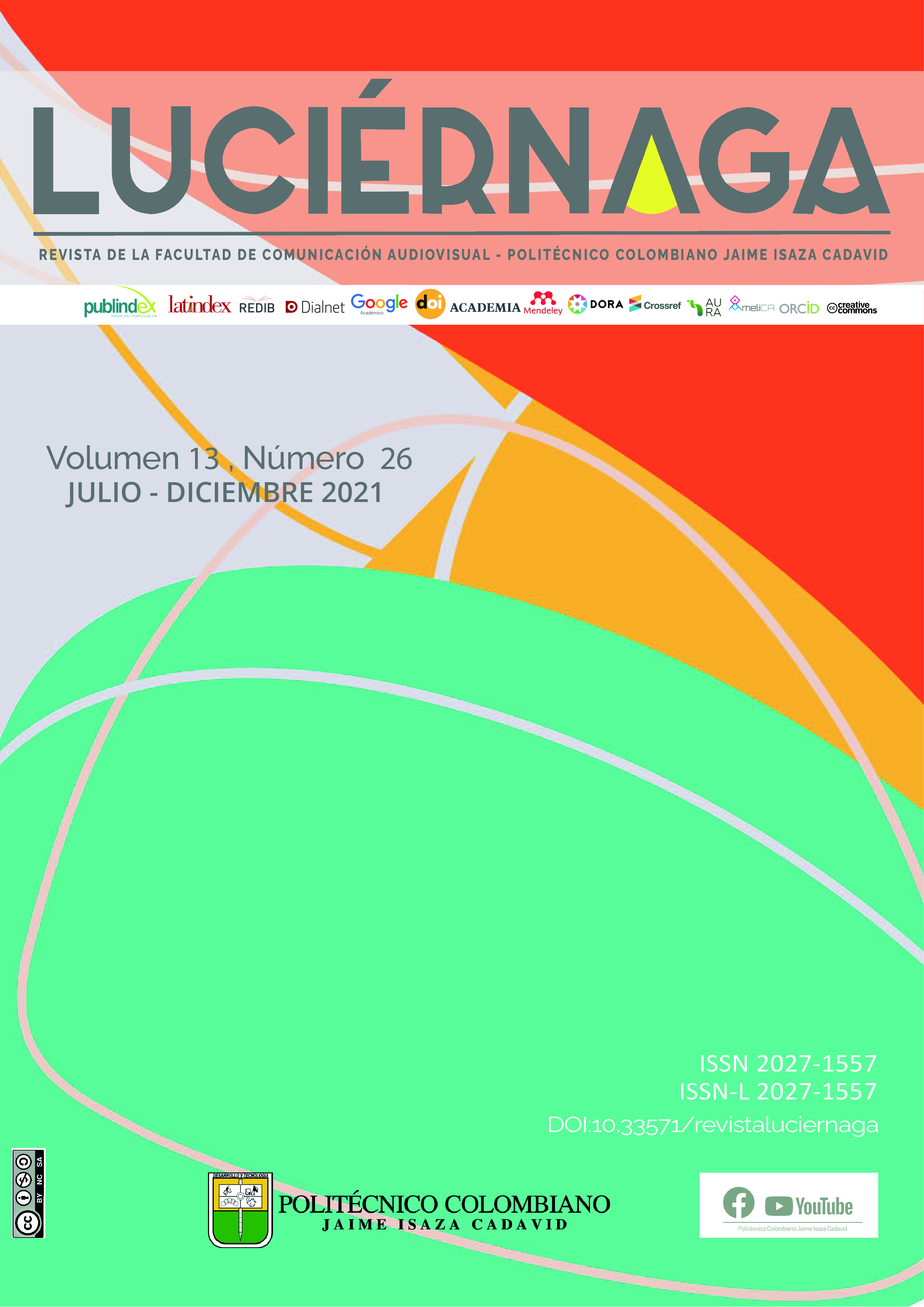Derechos humanos, género y violencia desde la perspectiva de los Departamentos de Consejería Estudiantil
DOI:
https://doi.org/10.33571/revistaluciernaga.v13n26a3Palabras clave:
Género, equidad, violencia, derechos humanosResumen
El proyecto “Derechos Humanos: Equidad Social y de Género, un camino hacia la Coeducación¨, ejecutado por la Carrera de Género y Desarrollo de la Universidad de Cuenca como proyecto de Vinculación con la Comunidad, pretende visualizar y evidenciar, desde la perspectiva de las y los actores educativos (docentes, padres y madres de familia, estudiantes, funcionarios y funcionarias de los departamentos de consejería estudiantil – DECE) aquellos aspectos relacionados con la violencia, enfoque de género y derechos humanos, cómo se sincretizan en la práctica y cotidianeidad dentro de los entornos educativos y cuáles son sus principales derroteros; por otro lado, este estudio pretende constatar los criterios e imaginarios que circundan alrededor de cómo se concibe al género y la violencia en dichos actores educativos para su posterior orientación y aclaración teórica. En esta ocasión el análisis se centra en aquellas personas que forman parte de los DECEs de las instituciones participantes en este proyecto, cuyo diagnóstico permitirá tomar acciones desde la academia a fin de implementar estrategias de acción que tomen en cuenta los grupos humanos, sus contextos y sus necesidades.
Métricas de artículo
Resumen: 462 PDF: 283Métricas PlumX
Citas
Álvarez, M., Castro, P., González, C., Álvarez, E., & Campo, M. (2016). Conductas disruptivas
desde la óptica del docente: validación de una escala. Anales de Psicología, 855-862.
Bausela, E. (2015). SPSS: Un instrumento de análisis de datos cuantitativos. Revista de Informática Educativa y Medios Audiovisuales, 62-69.
Cain Miller, C. (2018). “La desigualdad de género empieza con las tareas de la casa”. Recuperado de: https://www.nytimes.com/es/2018/08/15/desigualdad-genero-quehaceres-domesticos/
Chávez, R. (2012). Masculinidad y Feminidad: ¿De qué estamos hablando? Educare, 5-13
Emakunde. (2015). Instituto Vasco de la Mujer. Obtenido de http://www.emakunde.euskadi.eus/contenidos/informacion/pub_folletos/es_emakunde/adjuntos/emakunde.cas.2014.pdf
Euskadi.eus. (2015). Emakunde instituto vasco de la mujer. Obtenido de http://www.emakunde.euskadi.eus/nahiko/-/informacion/nahiko/
MIES. (s.f.). Ministerio de Inclusión Económica y Social. Obtenido de cantones trabajan para erradicar la mendicidad: https://bit.ly/3vciqAW
MINEDUC (s.f.). Ministerio de Educación. Modelo de atención integral de los departamentos de consejería estudiantil. https://bit.ly/3hKXHQX
Observatorio de los Derechos de la Niñez y Adolescencia. (2012). Estado de los derechos de la niñez y la adolescencia en Ecuador 1990 - 2011. Quito: Observatorio Social del Ecuador.
Prado, M., González, P. (2012). Las víctimas invisibles de la Violencia de Género. Revista Clínica de Medicina Familiar, 30-36
Prieto Santana, M. D. (2013). Las religiones se enfrentan a la rebelión de las mujeres. Recuperado de: https://www.tendencias21.net/Las-religiones-se-enfrentan-a-la-rebelion-de-las-mujeres_a25457.html
República del Ecuador Asamblea General. (30 de 07 de 2016). Obtenido de https://www.habitatyvivienda.gob.ec/wp-content/uploads/downloads/2016/08/Ley-Organica-de-Ordenamiento-Territorial-Uso-y-Gestion-de-Suelo1.pdf
Sanchez, P., Gonzalez, M. (2016). El psicólogo educativo y su responsabilidad en la sociedad ecuatoriana actual: compromisos, retos y desafíos de la educación del siglo XXI. Revista Universidad y Sociedad, 123-129
Schettini, P., & Cortazzo, I. (2015). Análisis de datos cualitativos en la investigación social - Procedimientos y herramientas para la interpretación de información cualitativa. Buenos Aires: Edulp integra la Red de Editoriales Universitarias Nacionales (REUN).
Subirats, M. (2010). La coeducación hoy: los objetivos pendientes. Programa coeducativo para la igualdad, el respeto y la no-violencia, 2-16. Obtenido de Proyecto Nahiko - Formación: https://www.emakunde.euskadi.eus/contenidos/informacion/proyecto_nahiko_formacion/es_def/adjuntos/2010.09.21.marina.subirats.pdf
Tarducci, M. (2001). “Estudios feministas de religión: una mirada muy parcial”. En Cedernos Pagu (16) 2001. Pp.97-114. Recuperado de: http://www.scielo.br/pdf/cpa/n16/n16a06.pdf
UNICEF. (2014). La Violencia de Género contra las mujeres en el Ecuador. Quito: El Telégrafo. Obtenido de https://www.unicef.org/ecuador/Violencia_de_Gnero.pdf
Verdú, A., Briones, E. (2016). Desigualdad simbólica y comunicación: El sexismo como elemento integrado en la cultura. La Ventana, 24-50
Descargas
Publicado
Cómo citar
Número
Sección
Licencia
Derechos de autor 2021 Darwin Patricio García Ayala, Isabel Gil Gesto, Ana Lucía Íñiguez Ibarra, Walter Fabián León Machuca

Esta obra está bajo una licencia internacional Creative Commons Atribución-NoComercial-CompartirIgual 4.0.
Aquellos autores/as que tengan publicaciones con esta revista, aceptan los términos siguientes:- Los autores/as conservarán sus derechos de autor y garantizarán a la revista el derecho de primera publicación de su obra, el cuál estará simultáneamente sujeto a una licencia de Creative Commons Atribución – No comercial – Compartir igual
que permite a terceros compartir la obra siempre que se indique su autor y su primera publicación en esta revista. - Los autores/as podrán adoptar otros acuerdos de licencia no exclusiva de distribución de la versión de la obra publicada (p. ej.: depositarla en un archivo telemático institucional o publicarla en un volumen monográfico) siempre que se indique la publicación inicial en esta revista.
- Se permite y recomienda a los autores/as difundir su obra a través de Internet (p. ej.: en archivos telemáticos institucionales o en su página web) antes y durante el proceso de envío, lo cual puede producir intercambios interesantes y aumentar las citas de la obra publicada. (Véase El efecto del acceso abierto)
- Luciérnaga-Comunicación no cobra tasas o cargos a Autores o colaradores por la recepción, revisión o publicación de artículos (APC -Article Processing Charges/ publication fee).

















